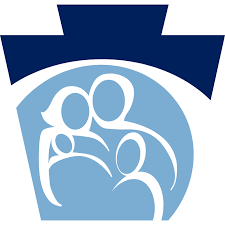Harrisburg, PA – Today, Department of Human Services Secretary Teresa Miller reminded Pennsylvanians of public assistance programs available to help families meet basic needs, such as affording groceries and accessing healthcare. Several new programs launched in recent weeks to help Pennsylvanians overcome the economic strains of the COVID-19 crisis.
“Together, Pennsylvanians have slowed the spread of the coronavirus and flattened the curve. We have made incredible personal sacrifices for the greater good. And while some parts of the commonwealth are beginning to reopen, we must still heed aggressive mitigation strategies so we can keep the virus under control,” DHS Secretary Teresa Miller said. “Pennsylvania will get through this and public assistance is one of the most important ways of making sure that everyone gets through.”
Last week, the department announced the Low-Income Home Energy Assistance (LIHEAP) Recovery Crisis Program, which launched Monday. DHS is working with utility companies and deliverable fuel vendors to help Pennsylvanians at risk of losing access to electricity, natural gas, or deliverable fuels such as oil. The program has been funded with $34.9 million Pennsylvania received from the federal CARES Act, and it will run through August 31 or until all budgeted funding is expended. Families may be eligible for a benefit of up to $800, and eligibility guidelines will be the same as those used during the 2019-2020 LIHEAP season.
DHS is also helping families get through this crisis with the new, federally funded Emergency Assistance Program (EAP). EAP provides a one-time cash benefit to families who have experienced a significant income reduction or complete job loss due to COVID-19. Since the program launched May 11, DHS has received more than 7,000 applications and disbursed more than $1.28 million to families in need. DHS has funded the program with existing Temporary Assistance for Needy Families (TANF) funds. EAP is open to families with a child under age 18 or a woman who is currently pregnant. Eligible families will receive a one-time payment equal to two months of TANF benefits for their household size – or about $800 for a family of three.
The Wolf Administration also recently received approval from the United States Department of Agriculture to extend additional support to families with children who participate in the National School Lunch Program. The Pandemic Electronic Benefit Transfer program (P-EBT) is designed to help families feed their children while schools are closed. In total, P-EBT will support the families of about 958,000 Pennsylvania children.
Pennsylvanians can apply for each of these programs at www.compass.state.pa.us.
Secretary Miller also encourages Pennsylvanians struggling with food costs to consider applying for the Supplemental Nutrition Assistance Program (SNAP), also known as food stamps. Anyone without health coverage can apply for Medical Assistance, or Medicaid, at www.compass.state.pa.us. The Children’s Health Insurance Program (CHIP) is affordable health coverage for children up to age 19, and it is available to every child regardless of family income. Pennsylvanians can apply for CHIP at www.chipcoverspakids.com.
To date, Pennsylvania has not experienced a significant surge in applications for SNAP or Medicaid. However, enrollment is steadily increasing.
Enrollment for SNAP has increased by about 123,000 people since February, for a total enrollment of about 1.86 million in April — a 7.1 percent increase.
DHS not currently terminating anyone from Medicaid or CHIP, unless they voluntarily withdraw, pass away or move to another state. Medicaid is available even if a person has other health coverage but needs additional assistance. Enrollment for Medicaid has increased by about 62,000 people since February, for a total enrollment of about 2.89 million in April — a 2.2 percent increase. CHIP covered about 186,000 Pennsylvania children in March. Today, CHIP enrollment is just over 200,000 children.
Application processing times remain consistent with pre-pandemic rates. DHS is actively monitoring these data trends and is working with the University of Pittsburgh to survey newly unemployed individuals and identify any barriers that exist to applying for benefits.
“Our goal is to make sure that people who could be helped by these services know we are here and what is available,” Secretary Miller said. “These programs exist to help people meet basic needs, such as affording groceries and accessing healthcare. Every single one of us could find ourselves in that position one day, and there should be no guilt or shame in asking for or accepting that help.”


